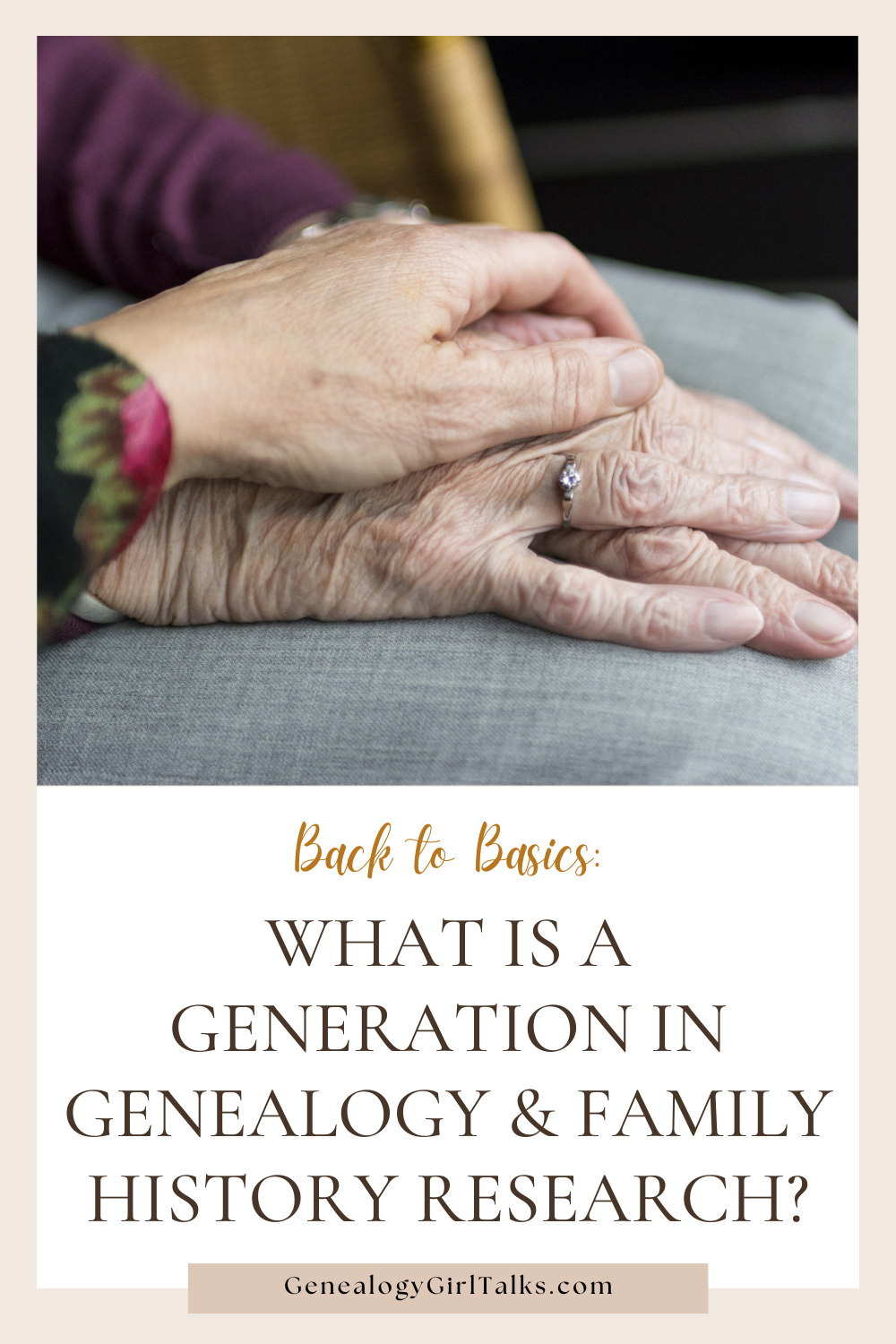Today we’re getting back to the basics! So, what is a generation when it comes to Genealogy and Family History?
According to the dictionary a generation is “a body of living beings constituting a single step in the line of descent from an ancestor.”
Basically a generation is the amount of years between a child’s birth and their first child. For example, if a child is born in 1852 and their first child is born in 1872 this would be 20 years between generations.
Now, you can ask a dozen family historians what a generation is and you’ll probably get a dozen different answers. Personally, I’ve always referred to a generation as 20 years. However, I’ve recently discovered that most people use 25-30 years to refer to a generation.
Does a generation change through the years? I believe it does. Women had children at younger ages years ago. That would cause the generational years to be different than they are today.
Today we sometimes refer to generations in terms like as Baby Boomers, Gen X, Millennials, and more. The years between these generational terms are not uniform either. For example, Baby Boomers were born between 1946 and 1964. Gen X (Generation X) were born between 1965 and 1980. There are differences between the time span of these two generational terms. Baby Boomers cover 18 years and Gen X covers 15 years.
Why is it important to learn and understand the term generation in your own family history and genealogy, you ask? There are many reasons to learn about the term generation, but an important one is it will help you while you’re building your family tree. If you find a female ancestor with a child born while she is around 40 years old you may be missing a generation. Be sure to check and verify your female ancestor with documents and records.
A GENEALOGY TIP: One thing to consider when doing your family history and genealogy is to keep in mind the time period you are researching. This could be a key piece of information in determine the generational years of your ancestors.






